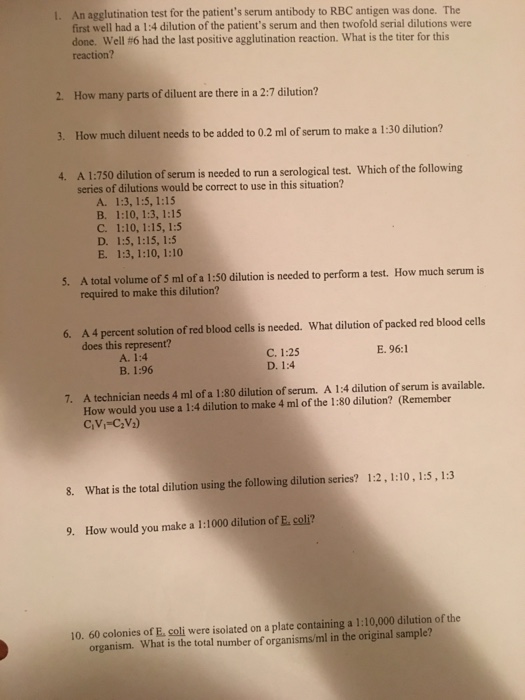Importance Of Serial Dilution In Serological Tests

This article does not any. Unsourced material may be challenged and. (January 2009) () An antibody is a measurement of how much an organism has produced that recognizes a particular, expressed as the inverse of the greatest dilution (in a ) that still gives a positive result. Is a common means of determining antibody titers. For example, the detects the presence of anti-Rh antibodies in a pregnant woman's. A patient might be reported to have an 'indirect Coombs titer' of 16. This means that the patient's serum gives a positive indirect Coombs test at any dilution down to 1/16 (1 part serum to 15 parts diluent).
Importance Of Serial Dilution In Serology. Tekken 7 Webeely. Serology - Importance of repeated tests Criteria for diagnosing Primary Infection 4 fold or more increase in titre of. Cerebrospinal fluid (CSF) analysis is a set of laboratory tests that examine a sample of the fluid surrounding the brain and spinal cord. Brian Schultz. Johanna Thompson. Evanne Trevaskis.
At greater dilutions the indirect Coombs test is negative. If a few weeks later the same patient had an indirect Coombs titer of 32 (1/32 dilution which is 1 part serum to 31 parts diluent), this would mean that she was making more anti-Rh antibody, since it took a greater dilution to abolish the positive test. Many traditional tests such as or employ this principle.
Such tests can typically be read visually, which makes them fast and cost-effective in a 'low-tech' environment. The interpretation of serological titers is guided by that are specific to the or in question; a titer of 1:32 may be below the cut-off for one test but above for another.